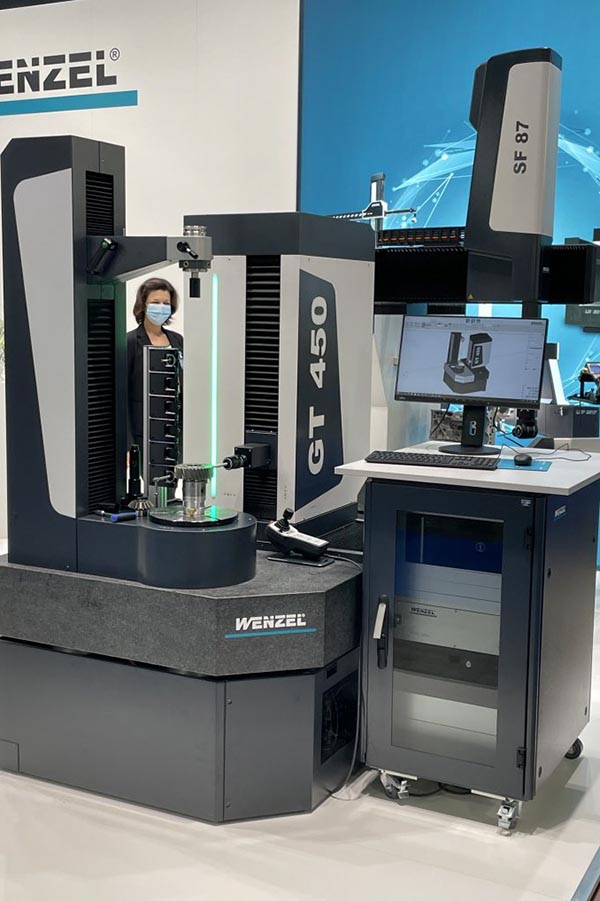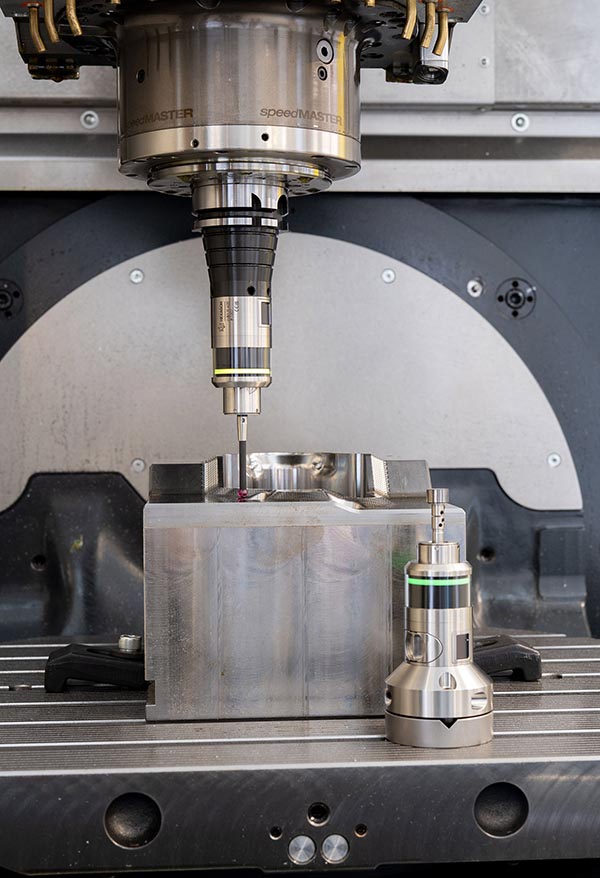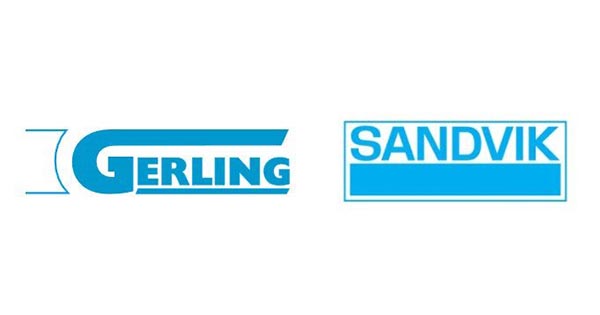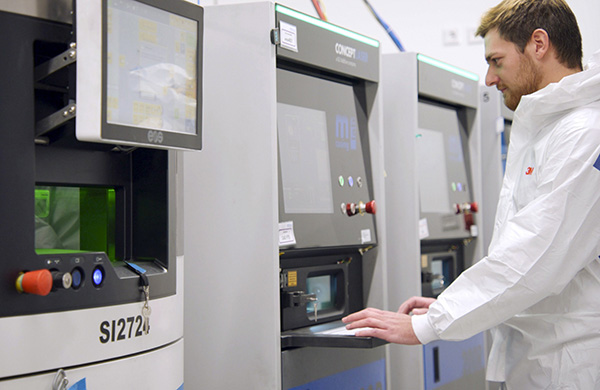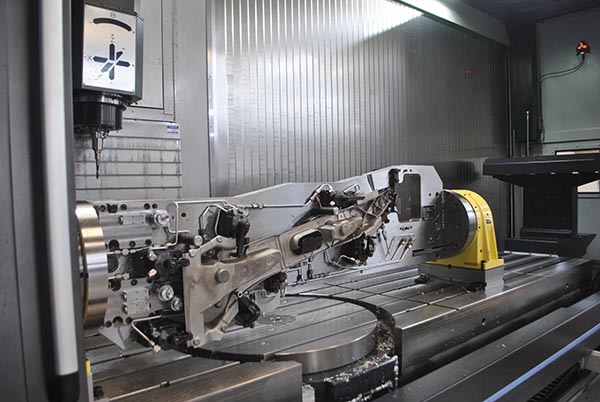
Mills CNC, the exclusive distributor of Doosan machine tools in the UK and Ireland, has supplied precision subcontract specialist – NuMachine Ltd – with two new five-axis machining centres. The machines, a VCF 850LSR and a DVF 6500, are now in place at the company’s 10,000 sq ft facility in Hereford, where they are producing small-batch cast aluminium automotive components required by sister company, Coventry-based Sarginsons Industries.
Explains NuMachines’ managing director, Brandon Davies: “Although we’re an independent precision subcontract engineering company in our own right, some 30-40% of our business, year-on-year, derives from Sarginsons. The strong and mutually beneficial relationship between both companies has enabled us to build up significant in-house knowledge and expertise in machining lightweight components for those sectors served by Sarginsons, the automotive industry being particularly prevalent.
“As a company with a reputation for taking on difficult jobs we were approached by Sarginsons in 2020 to see if we could help them with a specific machining contract – one where their existing supplier was finding it difficult to meet the customer’s stringent quality and lead time requirements,” he continues. “Having looked at the parts in detail, it was clear that we would need new five-axis machining capacity to produce the parts in the quantities required.”
NuMachine is no stranger to Doosan machine tools or Mills CNC. As such, the company had, even before its most recent five-axis machining centre investments, four Doosan machine tools at its disposal – the most recent being a Puma 3100Y lathe and a large-capacity DNM 750 II vertical machining centre – both acquired in 2020.
Says Davies: “Doosan machine tools deliver great performance; they’re reliable and competitively-priced. The fact that they are supplied and backed by Mills CNC is a key determining factor as we believe that Mills’ aftersales services and its applications and technical support, are among the best in the Industry.”

He adds: “The strength of the Doosan-Mills CNC partnership was the main reason we approached them with our requirement for two new five-axis machining centres.”
Since being installed, the VCF 850LSR has been used to machine long, thin and asymmetrically-shaped B-pillars, while the DVF 6500 machines performance-critical front suspension mountings. The B-pillars and suspension mountings parts have complex profiles; they are machined to tight geometric tolerances and exacting surface finishes, and feature a number of intricate details such as thin walls, multiple cavities and blind holes.
To ensure that the parts’ structural integrities are maintained during machining, and to make job set-up and cycle times as productive and efficient as possible, both machines were supplied to NuMachine with innovative and highly-customised work-holding solutions that, prior to the machines’ delivery, had been designed, developed and proven out by Mills CNC at its campus facility in Leamington.
Says Davies: “Although the machines were installed at our facility in May 2021 – the project, in reality, began some months earlier and involved us working closely with Mills and a number of the company’s technical partners to design ‘best-in-class’ turnkey fixtures for both machines.”
The work holding designed for machining the left and right B-pillars clamps each part securely in place, enabling high-precision machining operations to occur without deformation. Each part, which is long, thin and curved, is held in place by two rotary tables and a trunnion plate. The part is rotated (indexed) 90° and locked to allow the machining of each of its four sides. Only one set up is required for all machining operations, and the same fixture can machine both the left and right B-pillars. An innovative feature of the work-holding solution is the ability to machine features through apertures and spaces designed in the trunnion plate.
“To ensure we could meet our customer’s lead times and to help keep costs down we needed one work-holding solution for machining both left and right parts, and to machine the parts in one hit,” explains Davies. “It was a tall order but Mills delivered the goods.”

It was a similar situation with the DVF 6500 and the machining of the left and right front suspension mountings.
“Specific issues that Mills had to take into account with the suspension mountings were the machining of blind and angled holes, and the use of 300 mm long tools,” he says. “The solution designed by Mills and its partners involves the use of three separate fixtures – one fixture each for completing first operations on the left and right suspension mountings, and the third [shared] fixture for undertaking second operations on both mountings. There are fixture changeovers required to machine these parts but, with practice, we have got these down to a fine art.”
Doosan’s VCF 850LSR is a large-capacity, travelling column-type five-axis machining centre with a tilting B-axis head. The head can rotate 110° on either side of vertical, enabling the VCF 850LSR to machine large and complex parts in a single set up. The machine also has a large working envelope: 3000 x 850 x 800 mm (X/Y/Z).
The machine supplied to NuMachine was equipped with the latest Heidenhain TNC 640 control, a 22 kW/ 12,000 rpm high-torque spindle, a 60-tool servo-driven ATC, linear scales on its X, Y and Z axes for high positional accuracy, and a touch spindle probe and 3D tool probe package.
Doosan’s DVF 6500 is a five-axis simultaneous machining centre equipped with an oil-cooled and directly-driven BT40 spindle, a 650 mm diameter direct-drive rotary tilting table with a 1000 kg maximum table load, a servo-driven ATC, roller LM guideways and integrated thermal compensation.
The machine supplied to NuMachine was also equipped with the Heidenhain TNC 640 control, as well as a 12,000 rpm spindle and a touch spindle probe and 3D tool probe package.
“The capacity and capabilities of both machines were exactly what we required for machining the automotive castings,” states Davies.
The arrival of the two new machines in May 2021 necessitated the craning in of both machines through the roof.
“The roof needed to be lifted and almost all our other machines needed to be moved or repositioned in order to site the two new Doosans,” says Davies. “Thankfully, this was all accomplished with minimal disruption thanks to Mills’ operations and logistics team.”
He concludes: “We’re a company committed to continuous improvement and the recent investment in the two Doosan five-axis machines is further evidence of this. By constantly investing in our people, equipment and processes, we’re determined to be the best we can possibly be.”
For further information
www.millscnc.co.uk







